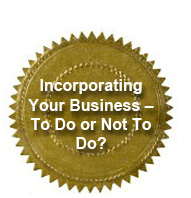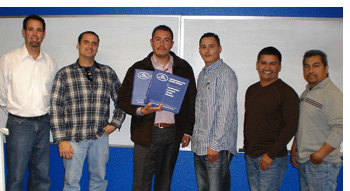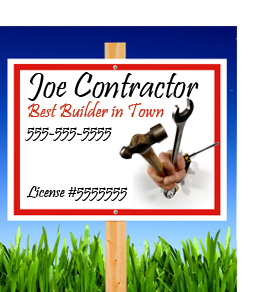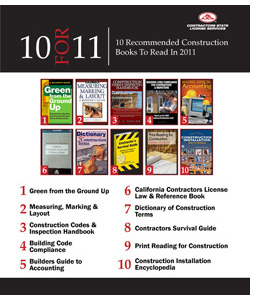Available Courses
-
CSLB Exam Prep Classes
- In-School Law & Trade
- Law & Business Online
- Home Study Law & Trade
- Crash Course
- Test Taking Skills
- Construction Math Review
-
Seminars & Continuing Ed
- Blueprint Reading Seminar
- California Electrical Cert.
- EPA - RRP Certification
- Mold Remediation
- Home Inspection Course
- ICC Certification
-
- Online Practice Exam for CA State License Exam
- Online Companion Guides for CA State License Exam
- TRY NOW! Online Practice Exam Demo
-
Clases de Español
-
Contractor Business Services
- Meet our Instructors
- Online Store
Newsletter

CSLS Construction Connection
Contractors State License Services is committed to the continued growth and education of your career as a licensed contractor. It is our intention to provide you with valuable information of what's new in the construction industry, important events that you may want to attend, and helpful business and exam preparation tips. You can also stay connected with CSLS through Facebook, Twitter, Linked in and You Tube.- INCORPORATING YOUR BUSINESS
- INSTRUCTOR'S CORNER
- KELLY HEROES
- SMART & EASY IDEAS FOR YOUR BUSINESS
- TOP 10 FOR 11
- INDUSTRY NEWS
Incorporating Your Business – To Do or Not To Do?

That is the question. As with so many decisions that need to be made about your business, it is important to familiarize yourself with the pros and cons of incorporating. There are initial costs involved with setting up your corporation and you will need to get familiar with tax procedures that differ a bit from running a business as a sole owner or partnership. However, there are numerous financial, legal and security benefits that come with running your business as a corporation that you should be aware of. Below are just a few of advantages and recommendations to incorporating your business.
Incorporate Early
It is recommended that you incorporate when you get your licensed. If you change to a corporation after you’ve been licensed for many years, this could affect your ability to get private or government sector jobs. When you change from a sole ownership to a corporation your past performance and credit history as a sole proprietor will not be recognized in background checks required for many different jobs.
Protect Your Personal Assets: The primary reason small business owners choose to form corporations is to protect their personal assets, such as their home, car or family savings. In the event of a lawsuit or if your business should fail, your personal assets cannot be touched assuming you have properly formed and maintained your corporation. The corporation’s limited liability feature is not available in a sole proprietorship or partnership, where the owner participants are personally liable for all business debts and actions.
Continuous Life: The life of a corporation, unlike that of a partnership or sole proprietorship, does not expire upon the death of its stockholders, directors or officers. This can be helpful to a surviving spouse who needs to continue running the business. If an owner dies or wishes to sell their interest the corporation will continue to exist and do business.
Build Corporate Business Credit: Doing business as a corporation allows a business owner to separate business credit from personal credit. A corporation since it is a separate entity can open a bank account through a corporate ID number rather than a personal Social Security number. By using a tax ID number a corporation can build credit autonomously and is not limited by a personal FICO score.
Need more information? CSLS has been helping businesses incorporate for over 10 years and we’d be happy to assist you with any questions that you may have.
Reid O. Daub
 Reid O. Daub is an ICC certified inspector and has been an instructor with CSLS since 2002. As an instructor with CSLS, he delivers IBC/IRC Seminars, Professional Home Inspection Seminars, Blueprint Reading and Estimating Seminars and License Exam Preparation classes. He is a member of the International Code Council.
License Exam Study Tip
Reid O. Daub is an ICC certified inspector and has been an instructor with CSLS since 2002. As an instructor with CSLS, he delivers IBC/IRC Seminars, Professional Home Inspection Seminars, Blueprint Reading and Estimating Seminars and License Exam Preparation classes. He is a member of the International Code Council.
License Exam Study Tip
"Don’t study new material for long periods of time, a saturated sponge will not soak up water
."
Kelly Elementary School Heroes
 Steven Kane, Toby Wiest, Carlos Partida, Eddie Dominguez and Mario Contrera, were recently recognized as heroes for saving school children at Kelly Elementary in Carlsbad, California when they apprehended a man who had opened fire on the schoolyard. CSLS offered each of these workers a CSLS program of their choice. It is an opportunity for CSLS to provide these men with the ability to further their careers and provide for their families.
Steven Kane, Toby Wiest, Carlos Partida, Eddie Dominguez and Mario Contrera, were recently recognized as heroes for saving school children at Kelly Elementary in Carlsbad, California when they apprehended a man who had opened fire on the schoolyard. CSLS offered each of these workers a CSLS program of their choice. It is an opportunity for CSLS to provide these men with the ability to further their careers and provide for their families.
Smart and Easy Ideas for Marketing your Construction Business

When you’re running your own construction business, marketing may not be your number one priority. You probably are more focused on doing the job right and making a profit. You probably depend on making your customers happy which will ultimately result in referrals down the road. That is the crucial part of your business. But are you missing out on easy marketing options that can continue to bring in new business? Let’s cover a few items that you can do that will make you stand out in your industry.
Your vehicle: Include your business name and services on your vehicle. You are your own mobile sign and chances are that you spend lots of hours on the road. The cost for vinyl lettering and graphics can be very inexpensive. Or you can step up with full graphics with a car wrap. This is a vibrant full color vinyl material that can cover your entire vehicle or just a portion. This can make quite a statement going down the highway. Don’t forget to include your contractor’s license number – it’s required by law in the State of California.
Garden Signs: If acceptable with your customer include a garden sign on the property where you are currently working. This should reflect your business name, your trade, contact number and contractor’s license number. You can find great prices for these online.
Business Cards: You probably know that business cards are a necessity for your business. Never just pass out one to your customers for their convenience. Leave them several so they can pass them out to friends who need work done. And make your business card something that they want to keep handy in their wallet. Add a current calendar or measurement chart, something that they can reference on a regular basis. Every time they pull out your card they will remember you and the great job you did for them. Top of mind made easy. And once again, include your contractor’s license number. The CSLB gives out fines for business cards without a license number.
Referral Program: Implement a referral program that thanks your customers for sending work your way. A check or gift card works well here. Include a card that has your company name and logo so it will associate the gift from you.
10 for 11 – 10 Recommended Construction Books to Read in 2011
 Our top 10 selection for 2011 reflects those books that are most popular through our in-school and online contractor bookstores. These books include important information for any contractor whether you’re still studying to pass your contractor’s license exam, if you’ve just gotten your contractor’s license, or if you have already been running your construction business for years. The titles on our list are valuable reference books that cover general construction concepts.
Our top 10 selection for 2011 reflects those books that are most popular through our in-school and online contractor bookstores. These books include important information for any contractor whether you’re still studying to pass your contractor’s license exam, if you’ve just gotten your contractor’s license, or if you have already been running your construction business for years. The titles on our list are valuable reference books that cover general construction concepts.
Green From The Ground Up, published by Taunton Press, is a must-have reference for contractors who want to remain competitive in the most important building trend of the decade. In direct response to the growing demand for sustainable, healthy, and energy-efficient homes, authors David Johnston and Scott Gibson present the most forward-thinking theories and the best proven methods of new and remodeled green construction.
Measuring, Marking, & Layout, also published by Taunton Press, shows that you don’t have to invest a fortune in space-age gadgetry to make accurate measurements. Author John Carroll provides dozens of beautifully simple techniques for good habits of measuring and marking that will not only ensure quality but also save materials and money to increase your productivity.
Construction Codes & Inspection Handbook, published by McGraw-Hill, along with “Building Code Compliance for Contractors & Inspectors," published by Craftsman Books, together comprise an unsurpassed tandem of comprehensive general reference books on building codes and code compliance for both contractors and inspectors. No contractor’s reference library is complete without these two incomparably valuable books.
Builder’s Guide to Accounting, also published by Craftsman, is a comprehensive guide to construction accounting that tells you in plain English, step-by-step, how to choose, set up, and maintain an appropriate, efficient, and practical bookkeeping system for your business. Includes interactive self-test software on CD-ROM with over 400 study questions.
California Contractor’s License Law & Reference Book, published by the renowned legal book publisher Lexis Nexis on behalf of the CA CSLB, is the most essential book of the Top 10. Updated annually, this book is basically The Bible for any construction business in California. Includes CD-ROM with entire book contents in digital format for easy search on your PC.
Craftsman’s Illustrated Dictionary of Construction Terms, is more than just a reference book that defines hundreds of terms – it’s a practical how-to manual filled with illustrated articles that explain how the work should be done and what materials and equipment are required.
Contractor’s Survival Guide is subtitled “Building Your Business in Good Times and Bad”, and if you are a home improvement contractor, then you need to read this important book now! Author Jason Reid is the co-founder of College Works Painting & Empire Community Painting, which together comprise one of the largest re-paint contractors in the USA. This valuable book shows you how to succeed while your competitors fail… no matter how bad the economy gets.
Print Reading for Construction: Residential & Commercial, published by Goodheart-Willcox, is designed to assist students, apprentices, and building trades workers in reading and understanding residential and commercial blueprints. The combination text and workbook presents a thorough discussion of print reading techniques starting with basic lines & symbols and progressing to specialized prints and specifications.
Construction Installation Encyclopedia, another Craftsman book, is a whopping 787 pages of encyclopedic knowledge for just about any residential construction, remodeling, or repair task you’re likely to face. Written in clear, everyday language, this practical reference covers most major installations from A to Z, from Acoustic Tile to Wood Flooring, with hundreds of diagrams and illustrations to help you plan your projects. Includes CD-ROM with entire book contents.
In addition to these great general reference books in our Top 10 for 2011 we have a wide selection of other books that are specific to a variety of trade classifications including General B, General A, C-10 Electrical, C-20 HVAC, C-33 Painting, C-36 Plumbing, C-39 Roofing, C-46 Solar and many more. If you need construction reference books for your trade or are studying for your Trade License exam and need a little help, take a visit to the CSLS Online Bookstore or visit a school location near you.
CSLB Zero-Tolerance Policy for C-10 Employee Certification Requirements Creating Buzz
At a recent meeting of the CSLB Enforcement Committee (January 12, 2011) held at the Board’s new Valencia Investigative Center, Board enforcement staff reported over 30,000 licensees have received notice of the Board’s Zero-Tolerance Policy for C-10 Electrical Contractors employing uncertified electricians.
Labor Compliance Officers and members of electrical worker unions have been aggressively reporting C-10 contractors who violate the electrician certification requirements established by the Labor Code Section 3099 (http://www.leginfo.ca.gov/cgi-bin/displaycode?section=lab&group=03001-04000&file=3070-3099.5) and regulated by the Department of Industrial Relations Division of Apprenticeship Standards (DIR/DAS). The Labor Code requires CSLB to investigate every report of a violation. Board enforcement staff indicated investigations resulted in 10 citations in the last month alone.
Electricians are defined as all persons who engage in the connection of electrical devices for C-10 contractors. It is CSLB’s position that electrical work must be performed by a certified electrician or an approved apprentice. Trenching, concrete, framing, and other work that does not involve connecting electrical devices may be performed by noncertified workers. For more information about the Board’s Zero-Tolerance Policy for C-10 Employee Certification Requirements, visit the CSLB Industry Bulletin from 11/19/2010 at http://www.cslb.ca.gov/GeneralInformation/Newsroom/IndustryBulletins/
IndustryBulletins2010/IndustryBulletin201

